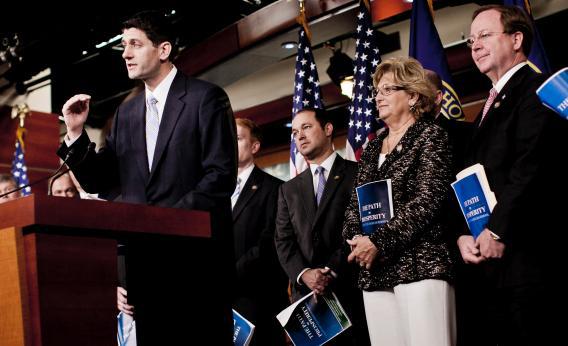Here’s how tax reform works in the United States. Everyone agrees that it would be better to reduce marginal tax rates and also close loopholes and deductions. That would get you the same revenue, but with less economic distortion and stronger growth. Or you could get more revenue with an equal amount of economic distortion and stronger growth. Or some combination of the two. At the same time, closing each and every loophole is exceptionally unpopular. That’s because tax loopholes come in two basic forms. On the one hand you have your tiny loopholes. Closing these loopholes raises very little money, and thus does very little to finance politically exciting rate cuts. At the same time, they’re narrowly targeted at small interest groups who fight doggedly like starving rats to hang on to their tax break. Between the intensity of their efforts and the indifference of the broader public, they stay in place. Then you have your big loopholes. These raise a lot of money and get people psyched up about rate cuts. Except lots of people benefit from the big loopholes and they get mad if you take them away.
Therefore, the correct thing to do on tax reform is say: we should enact a pro-growth tax reform, that cuts marginal rates while closing inefficient loopholes and deductions!
People will clap. Then you return to your daily life and nothing changes. But with today’s Path to Prosperity 2.0, Representative Paul Ryan of Wisconsin really breaks new ground in this game. His budget in all its PDF’d glory contains a thirteen page discussion of tax reform. Not one sentence. Not one paragraph. Thirteen pages dedicated to explaining his vision for revenue-neutral tax reform. And even so he manages to not name a single tax deduction that he’s planning to eliminate. Home mortgage interest deduction? I dunno. Electric vehicle tax credit? I dunno. Deductibility of state and local income taxes? I dunno. I read thirteen pages on tax reform, and didn’t learn anything about Paul Ryan’s views on tax reform.
Interestingly, Ryan actually gets this right on Page 2 of the overall document, aka the Table of Contents, wherein he says “VI. Pro-Growth Tax Reform” which is exactly the correct way to express the idea. He is for pro-growth tax reform! So am I! So is everyone! And yet it’s not going to happen by finding increasingly longwinded ways of avoiding naming specific provisions.
